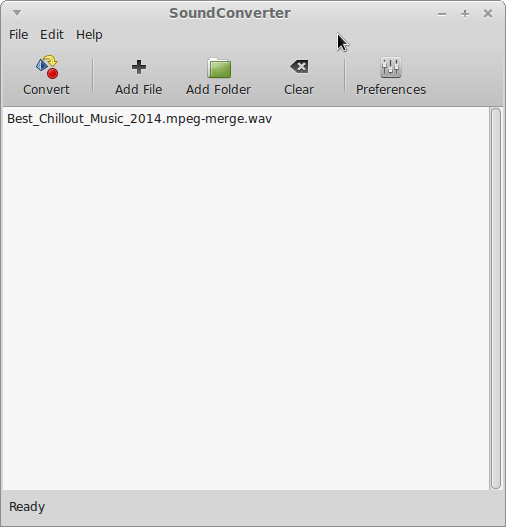-----------------------------------------------------------------------
#! /bin/bash
# SOURCE
SSH_PORT=22
SSH_USER="userA"
SSH_HOST="192.168.0.5"
SSH_PATH="/home/userA/"
# DESTINATION
DST="/home/userB/backup/"
DST_CHOWN="userB"
SRC="${SSH_USER}@${SSH_HOST}:${SSH_PATH}"
CHECK_FAIL=0
if [ ! -f "/usr/bin/ssh" ]; then
echo "ssh not found!"
CHECK_FAIL=1
fi
if [ ! -f "/usr/bin/rsync" ]; then
echo "rsync not found!"
CHECK_FAIL=1
fi
if [ ! -f "/usr/bin/sshpass" ]; then
echo "sshpass not found!"
CHECK_FAIL=1
fi
if [ "$(id -u)" != "0" ]; then
echo "not root"
CHECK_FAIL=1
fi
if [ $CHECK_FAIL -eq 1 ];then
exit 0
fi
read -s -p "Enter SSH Password: " pswd
echo ""
echo "Connecting..."
/usr/bin/rsync --verbose --recursive --append --links --copy-dirlinks \
--hard-links --perms --executability --times --delete --chown=${DST_USER}:${DST_USER} \
--rsh="/usr/bin/sshpass -p '${pswd}' ssh -p ${SSH_PORT} -o StrictHostKeyChecking=no -l ${SSH_USER}" $SRC $DST
du ${DST} --max-depth=0 --block-size=MB
echo "Complete"-----------------------------------------------------------------------rsync-ssh-upload.bash
-----------------------------------------------------------------------#! /bin/bash
# SOURCE
SRC="/home/userB/backup/"
# DESTINATION
SSH_PORT=22
SSH_USER="userA"
SSH_HOST="192.168.0.5"
SSH_PATH="/home/userA/"
DST_CHOWN="userA"
DST="${SSH_USER}@${SSH_HOST}:${SSH_PATH}"
CHECK_FAIL=0
if [ ! -f "/usr/bin/ssh" ]; then
echo "ssh not found!"
CHECK_FAIL=1
fi
if [ ! -f "/usr/bin/rsync" ]; then
echo "rsync not found!"
CHECK_FAIL=1
fi
if [ ! -f "/usr/bin/sshpass" ]; then
echo "sshpass not found!"
CHECK_FAIL=1
fi
if [ "$(id -u)" != "0" ]; then
echo "not root"
CHECK_FAIL=1
fi
if [ $CHECK_FAIL -eq 1 ];then
exit 0
fi
du ${SRC} --max-depth=0 --block-size=MB
read -s -p "Enter SSH Password: " pswd
echo ""
echo "Connecting..."
/usr/bin/rsync --verbose --recursive --append --links --copy-dirlinks \
--hard-links --perms --executability --times --delete --chown=${DST_USER}:${DST_USER} \
--rsh="/usr/bin/sshpass -p '${pswd}' ssh -p ${SSH_PORT} -o StrictHostKeyChecking=no -l ${SSH_USER}" $SRC $DST
echo "Complete" -----------------------------------------------------------------------
.png)

